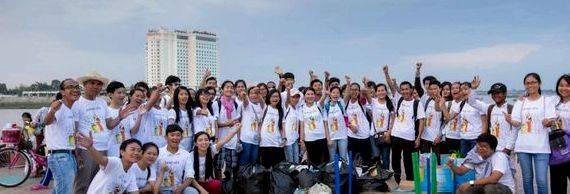

Above:Author’s Supplemental Video, Tapestry of Tears . See the bottom of this page for six supplemental PDF files that document the author’s blog posts.
Alpha M. Woodward, PhD, is a 2015 graduate of the PhD Program in Leadership and Change at Antioch University.
Alpha M. Woodward, Ph.D. [center] at her Dissertation Defense with Committee Member, Laurien Alexandre, Ph.D. [left] and her Committee Chair, Carolyn Kenny, Ph.D. [right].
- Carolyn Kenny, Ph.D. Chair
- Laurien Alexandre, Ph.D. Committee Member
- Lars Ole Bonde, Ph.D. Committee Member
- Susan Hadley, Ph.D. External Reader
In the fall of 2003 I was invited to lead a team of music therapists in Bosnia and Herzegovina (BiH), a country that had been recently savaged by two brutal inter-ethnic wars. The program operated out of the Pavarotti Music Centre on the East side of Mostar, a divided city in the southwest region of BiH. My journey over the next four years was epically challenged by my immersion into the complexities of post-conflict recovery, and the cultural confusion that followed the atrocities of those wars. Transformation and change not only characterized the world in which I worked, but also paralleled internal processes proceeding silently within me. As a music therapist I have always worked within a framework of cultural constancy. In post-conflict societies, we become involved in a colossal moving fray of change. This dissertation is an autoethnography that uses heartfelt, reflective writing with the purpose of gaining a deeper understanding of my identity as a leader, as a music therapist, and as a cultural being in these sometimes difficult, but life-enhancing, four years. Together with academic perspectives and performative writing techniques, it explores a trail of thematic material that emerged during a confusing, ambiguous repatriation period in the years following my time in Bosnia.

The autoethnography, an evocative expression of phenomenological research, is a conversation with “self” and with distant others who inhabit a time frame in the past, and thus informs an emergent narrative that carves its own path throughout the eight chapters. Ultimately, the dissertation aims toward a deeper understanding of my own culpability as a leader of a small multi-ethnic team in Mostar, BiH, and the implications this may have for arts-based fieldwork practice in post conflict regions. This dissertation is accompanied by seven supplemental files: 1 Mp4 video and 6 blog post pdf files. The electronic version of this Dissertation is at Ohiolink ETD Center, etd.ohiolink.edu and AURA aura.antioch.edu/

Alpha M. Woodward, Ph.D.
Alpha Woodward is a scholar-practitioner who began her career as a private clinical music therapist in 1992 at Providence Health Care in Vancouver, B.C. Over the following 11 years she developed the practice into a full time position and extended the music therapy program to four different sites and served on the professional practice council as the professional practice leader for music therapy. In 1998 she earned her MMT, the only one of its kind in Canada at that time, and in 2004 she moved into the humanitarian development sector to accept a position as senior music therapist and team leader at the Pavarotti Music Centre in Bosnia and Herzegovina.

For the next four years she led the program through several transitions and had an opportunity to witness the important role of the arts in regions recovering from armed conflict. In 2007 Alpha was honored with the inaugural Distinguished Alumni Award from Capilano University, North Vancouver, in recognition for her work in war-affected Bosnia and Herzegovina. Over the course of her career she has presented her work in several national and international conferences and has published several articles in peer reviewed journals. Alpha served on the Alumni Board of Directors at Capilano University from 2008 to 2010 before moving to Montreal, Quebec where she taught at the masters level in music therapy in the Creative Arts Therapy Department at Concordia University. She is currently the acting Course Director for the MA in Music Therapy at the Irish World Academy of Music and Dance at the University of Limerick in Ireland.
Woodward, Alpha M. “Tapestry of Tears: An Autoethnography of Leadership, Personal Transformation, and Music Therapy in Humanitarian Aid in Bosnia Herzegovina” (2015). Dissertations Theses. Paper 192.
aura.antioch.edu/etds/192
This qualitative, reflexive autoethnography explores my health journey over a span of 20 years and beginning with the 1994 diagnosis of breast cancer, through the 2012 diagnosis of an endothelial ischemic microvascular pattern heart dysfunction, and up to the 2014 writing of this dissertation study. The purpose of this study was to define the construct of hope-based action from the perspectives of nine participants and myself. As researcher-participant, I used reflexivity and personal narrative to describe the language and rituals of a culture of hope. The construct of hope was investigated from the perspectives of Snyder’s hope theory (1994) from the field of positive psychology, Greenleaf’s (1977) servant leadership approach from the field of organizational studies, and autoethnographic methodology.
The purposeful sample of my culture-of-hope guides were selected from the Leadership Areas of Business, Education, and Healthcare. Interview data from the participants and document data from my own writings were collected and analyzed. I used ethnographic analysis methods along with ATLAS.ti, a Computer Assisted Qualitative Data Analysis Software (CAQDAS), to conceptualize the model.
Findings suggest that heart-centered leaders take hope-based action. The major cultural components related to a hope-based and heart-centered leadership culture are: Identify the Need, Implement Approaches, and Monitor the Impact. A Heart-based Hope Model of Leadership (L2L) showcasing how these three cultural components operationalized five cultural categories: Communication, Guidance, Mindset, Motive, and Value was presented. An overarching theme of a hope-based philosophy was shown as being carried out through a heart-based approach.
The results of this study may have theoretical implications for workforce researchers interested in positive workplace cultures. The findings may also have practical implications for workforce leaders from Business, Education, and Healthcare, who want to implement hope-based action to create a heart-centered culture.
Autobiography; Breast cancer patients’ writings; Hope; Leadership
Curriculum and Instruction | Curriculum and Social Inquiry | Educational Leadership | Educational Methods
Kimball, Cynthia Jeanne, “An Autoethnography of Heart-Based Hope Leadership: A Matter of Life or Death” (2014). UNLV Theses, Dissertations, Professional Papers, and Capstones. Paper 2109.
digitalscholarship.unlv.edu/thesesdissertations/2109
Previous answers to this question
This is a preview of an assignment submitted on our website by a student. If you need help with this question or any assignment help, click on the order button below and get started. We guarantee authentic, quality, 100% plagiarism free work or your money back.
 Get The Answer
Get The Answer